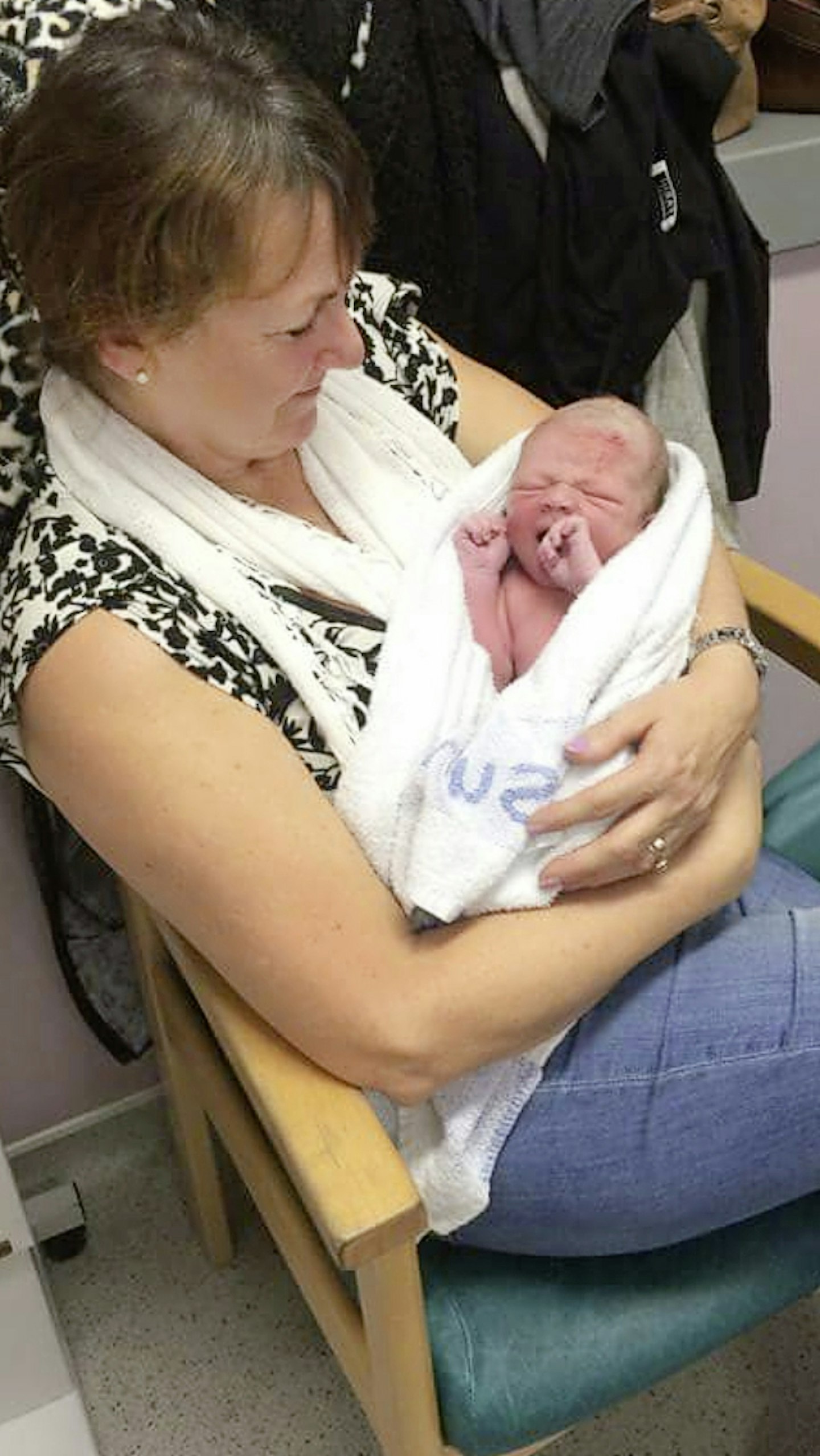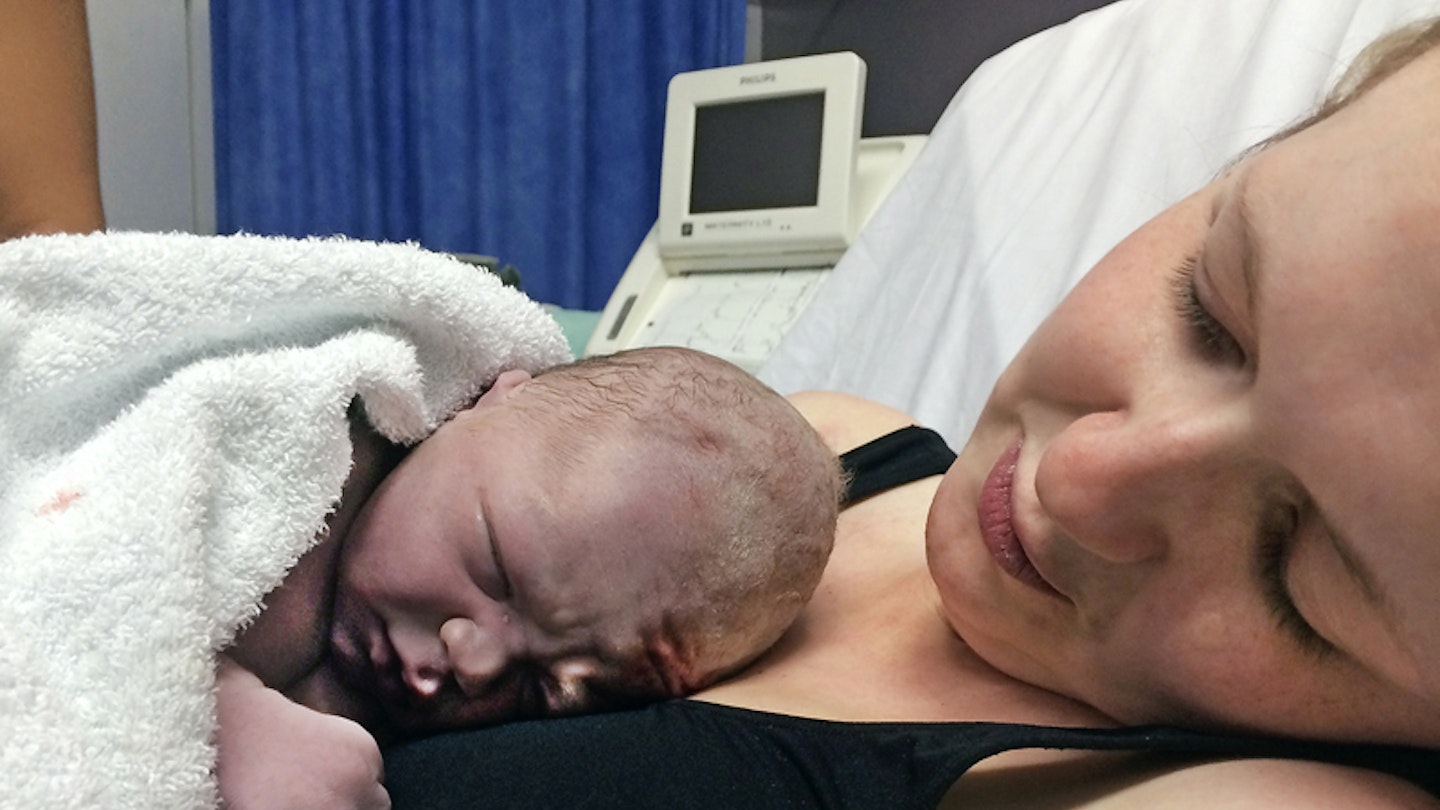Charlotte Denny, 24, lives in East Sussex with son Etienne, 16 months. She tells M&B how her mum became her birthing partner to welcome her grandson into the world.
When I found out I was pregnant, the father decided he wouldn’t stick around, so my decision regarding my birth partner was made. It was always my mum I wanted there. We’ve always been close. She supported my decision to go ahead with the pregnancy and stayed with me from 33 weeks pregnant. The idea of being a single mum never daunted me. Pregnancy gave me time to adjust to the changes in my life. I’m also close to my older sister, Samantha, who lives close by, so I never felt upset about being without a partner.
Pregnancy gave me time to adjust to the changes in my life
I was eight days overdue when I felt my first real contraction at 10pm. As I lay in bed, I felt a period-like cramp in my bump, which felt more painful than the Braxton Hicks practice contractions I’d been having. When they came five minutes apart, I started to feel excited. An hour later, I got up to run a soothing bath and noticed a small bleed, which didn’t look like the expected mucous plug. Concerned, I woke Mum who advised me to call the hospital. I was told to come straight in.
Samantha drove us to hospital. By 2am, the pain was intense but I was only 3cm dilated. When the midwife offered me gas and air, I refused, preferring to wait until I really needed it. ‘You can do it,’ Mum kept telling me, which boosted my confidence.
Once I was used to the spaced-out feeling, it helped calm me
Then everything notched up a gear. To speed my labour up because of the ongoing bleeding, my waters were broken at 1pm. That’s when the pain really kicked in! Waves of powerful contractions swept over me. I asked for the gas and air. Once I was used to the spaced-out feeling, it helped calm me.
‘I can’t go on much longer,’ I sobbed in pain. Samantha started rubbing my back, stroking my hair and telling me I was almost there. When the midwife explained that what I was feeling was normal, and that most women feel emotional when they reach the end of labour, I felt reassured. In between contractions, I had a sense of solidarity with my mum and sister, knowing they’d also experienced childbirth.
By 3pm the contractions were lasting a minute and were almost back to back. ‘You’re fully dilated,’ the midwife said. With the pain almost unbearable, I asked for more pain relief, but was told it was too late. I slipped into a dream-like, almost meditative state. I was aware of mum and Samantha’s calming presence. I felt a low-down pressure and the need to push, but I hardly registered what was happening. Settling in a lying position on the bed, I pushed with all my strength.
‘I can see the baby’s head and he’s beautiful,’ Mum said excitedly
After 40 minutes of pushing, my baby’s heart rate started dropping. ‘We need to get him out as quickly as possible,’ the midwife explained, mentioning that they might need to use forceps. I didn’t want intervention, so I put everything I had into the next push. ‘I can see the baby’s head and he’s beautiful,’ Mum said excitedly, which spurred me on. I gave an enormous push and the body came out.
I was hardly able to register what had happened. It was only when I looked up and saw Etienne being placed on my chest, with my mum and sister gazing adoringly at him, that I realised I was actually a mum.
The midwife explained that the umbilical cord was wrapped round his neck, and that’s what had caused his heart rate to drop. Thankfully, it had caused no damage and he was perfectly healthy. Mum cut the cord and we all had cuddles with Etienne. It was a beautiful moment. I’m so pleased we were all able to share my birth experience.

Three things I’d tell my friends
-
Don’t rule anything out for your labour. I thought I’d only want my mum, but on the day I appreciated having my sister there.
-
If you’re single and pregnant, Gingerbread, a charity for single parents, gives really useful advice and practical support.
-
Remember that it’s normal to feel upset and lose confidence towards the end of your labour. The ‘transition stage’ just means you’re almost ready to meet your baby.
